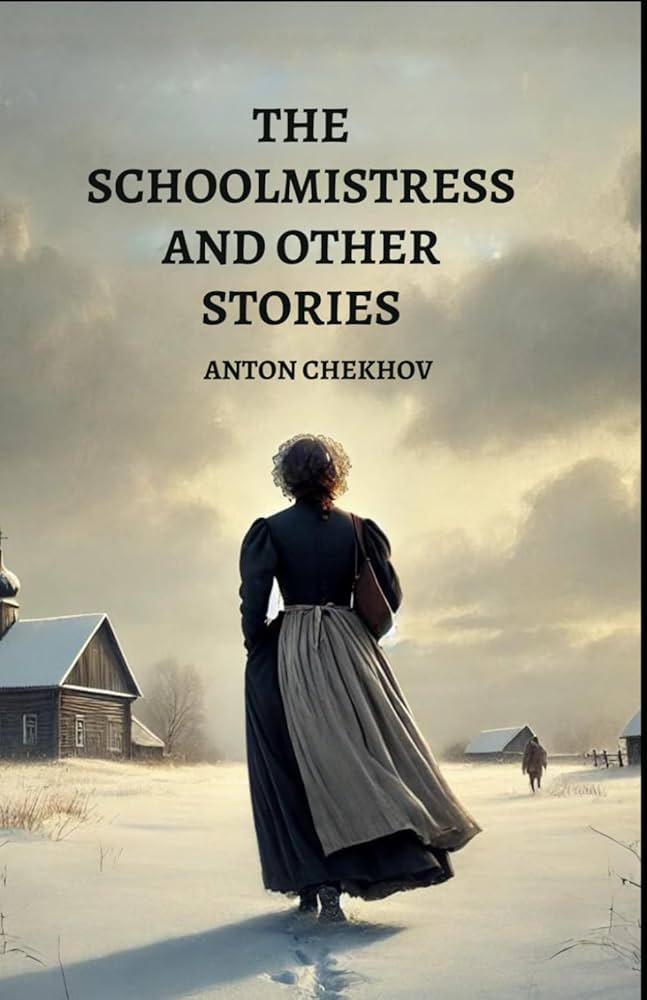THE SHOEMAKER AND THE DEVIL
by“The Shoemaker and the Devil” begins with Fyodor Nilov, a cobbler whose hands are weathered by honest labor, yet whose life remains empty of comfort. He toils late into Christmas Eve, his thoughts growing darker as he compares his own struggles to the luxury enjoyed by others. When a strange, limping man enters—partly concealed beneath furs but revealing a hoofed foot—Fyodor’s misery meets temptation. The stranger’s uncanny presence hints at something infernal, yet the lure of wealth silences Fyodor’s caution. Disillusioned with his station, he offers what he believes to be a useless soul in return for riches. The devil, amused by the shoemaker’s practicality, agrees. The transformation is swift, and Fyodor’s world turns from dust and leather scraps to velvet robes and glistening silverware. However, the comfort he once envied now comes with a cost he hadn’t imagined—one not measured in rubles, but in peace of mind.
Though his home now boasts grand mirrors and a dining table that never empties, Fyodor begins to choke on the trappings of affluence. The neighbors who once shared soup with him now bow politely, yet their eyes carry judgment rather than warmth. His wife, chosen for her beauty and refinement, finds little joy in his company, preferring praise to affection. Music, once his refuge, now embarrasses those around him—his wealth has cast him into a role that demands silence and sophistication. Worse, the devil’s promise wasn’t merely symbolic; whispers follow him, shadows linger, and sleep grows restless. Each coin that clinks in his pocket feels like a chain. He fears the knock at the door, the day of reckoning he knows will come. In chasing the comforts he lacked, Fyodor has surrendered the simplicity that gave life its soul.
Society’s gaze becomes a prison. Fyodor’s wealth was supposed to lift him above hardship, yet he finds himself shackled by expectations, judged not for his joy but for his compliance with an image. He realizes that riches do not rewrite one’s heart—they only decorate the outside. In one encounter, a beggar approaches, and for a moment, Fyodor sees his former self reflected in ragged clothes and hope-filled eyes. But giving alms now feels like theatre; it earns him nothing but a stiff nod. Meanwhile, his once-warm laughter fades, replaced by hollow gestures meant to impress rather than connect. The devil visits again, not as a threat but as a collector—smiling, calm, and patient. The wealth was never the gift, it was the leash.
Fyodor’s descent into discomfort is not caused by misfortune, but by an absence of meaning. In his attempt to escape poverty, he abandoned purpose. There is no joy in comfort for a man who does not feel he’s earned rest. His tools remain unused in a corner of the manor, and the dust that settles on them weighs heavier than any gold coin. The wife he chose for her class views him more as a wallet than a partner. Even his servants, who follow orders precisely, offer no human warmth. He dreams of simpler times—of worn boots warming by the fire and the satisfaction of each stitch sewn with care. But the past cannot be returned, and the future feels like a slow march toward a conclusion he helped write.
As the final days draw near, Fyodor walks the streets alone, unnoticed by those who once knew him, unrecognizable to those who now do. He sees the devil in the crowd sometimes, never far, always waiting with a gentle nod. A lesson becomes clear—not in words, but in his bones—that wealth gained without soul becomes a burden heavier than poverty. The cobbler who once cursed the frost now longs for it, if only to feel something real. The streets that once echoed with the rhythm of his hammer now seem foreign, each stone more polished, each face more distant. The devil had not stolen Fyodor’s soul. Fyodor had offered it freely, not knowing the difference between having a soul and using one. In the end, the devil merely gave him what he wanted. It was the wanting itself that became his ruin.
This story, rich in symbolism and dark humor, lays bare a truth often hidden by ambition. It warns against the seductive promise of wealth without responsibility, of success without grounding. Fyodor’s tale reminds us that happiness cannot be bought or bargained for—it must be built with intention, shaped through struggle, and sustained with care. The shoes he no longer makes once carried people forward. But the deal he struck left him standing still, wrapped in luxury, yet barefoot in spirit.

